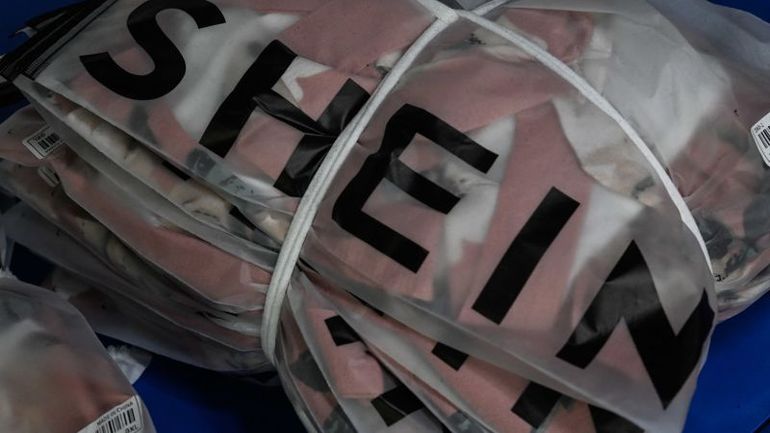
Shein's Struggle with Overwork Continues: Recent Report Reveals 75-Hour Weeks Persist

Despite Shein's pledge to address long working hours within its supply chain, a recent report indicates that the issue persists. The Chinese fast-fashion giant still faces challenges in curbing excessive work hours.
More than a year ago, Shein made a commitment to address the issue of long working hours within its supply chain. However, a recent report indicates that the Chinese fast-fashion giant is still facing challenges in this area.
According to a new investigation conducted by Public Eye, a Swiss human rights advocacy group, workers in certain factories that supply Shein are still working up to 75 hours per week. This finding echoes concerns raised by the same group back in 2021 about the alleged abuse within Shein's supply chain.
The Swiss organization stated that the 75-hour work weeks discovered two years ago are still prevalent at Shein.
Last summer, Public Eye spoke with 13 textile workers from six factories in Guangzhou, southern China. They reported working an average of 12 hours daily, not including meal breaks, and often worked six to seven days weekly.
Shein does not disclose the identities of its suppliers, according to Public Eye. The group identified these factories as Shein suppliers based on interviews and the presence of Shein products.
Public Eye also reported that workers' wages have remained relatively unchanged since their 2021 report. Wages ranged from 6,000 to 10,000 yuan per month ($829 to $1,382), but after factoring in overtime pay deductions, wages dropped to around 2,400 yuan ($332) per month. This falls well below the 6,512 yuan ($900) that Public Eye considers a living wage in China, as calculated by the Asia Floor Wage Alliance.
One worker mentioned to Public Eye that they work from 8 in the morning until 10.30 at night every day, only taking one day off each month. They explained that taking more days off would be too costly for them.
Shein, established in 2008, is an online shopping retailer that offers affordable fast fashion clothing to customers worldwide.
Shein responded to CNN by stating that they do not agree with many of the claims made in the report by Public Eye.
The company emphasized that the Public Eye report was only based on feedback from 13 individuals. They mentioned that while every voice in their supply chain is valued, it is important to consider that this sample size is small compared to the thousands of suppliers and workers they work with regularly to enhance their supply chain.
The company announced that it is investing tens of millions of dollars to strengthen the governance and compliance of its suppliers. They stated, "We will continue to make substantial investments in these areas."
In December 2022, Shein revealed plans to invest $15 million to upgrade hundreds of factories owned by its suppliers. This decision came after a documentary aired by the UK’s Channel 4, which accused two of Shein’s suppliers in China of labor exploitation. Allegations included factory workers reportedly working 18 hours a day for minimal pay per item produced.
Shein mentioned on Monday that their ongoing efforts have been successful, as seen in the positive results of regular supplier audits. These audits have shown a steady improvement in performance and compliance among their supplier partners.
According to Public Eye, Shein's code of conduct for suppliers emphasizes the importance of work-life balance. It states that staff should not exceed 60 hours of work per week, including overtime, and must be given at least one day off every week.
The advocacy group decided not to go back to Nancun, where Shein’s headquarters is located, for their 2021 investigation due to increased media attention that made the environment too risky.
Workers also mentioned to investigators that they observed more surveillance cameras in the factories. They believed that these cameras were sending real-time recordings to Shein to assist the company in enforcing its regulations.
Public Eye’s investigators noticed that in certain factories, young individuals around the age of 14 or 15 were seen carrying out basic tasks like packaging.
Reporting for this observation was done by Juliana Liu.
Editor's P/S:
The report from Public Eye paints a concerning picture of the working conditions in Shein's supply chain, despite the company's commitment to address the issue. Workers are reportedly still working excessive hours, with little downtime or compensation. The wages they receive are also insufficient, falling below the living wage calculated by the Asia Floor Wage Alliance.
It is crucial that Shein takes immediate action to improve the working conditions in its supply chain. The company has the resources and the responsibility to ensure that the people who make its clothing are treated fairly and compensated adequately. Shein must work with its suppliers to implement stricter labor standards and provide workers with the support they need to maintain a healthy work-life balance.








